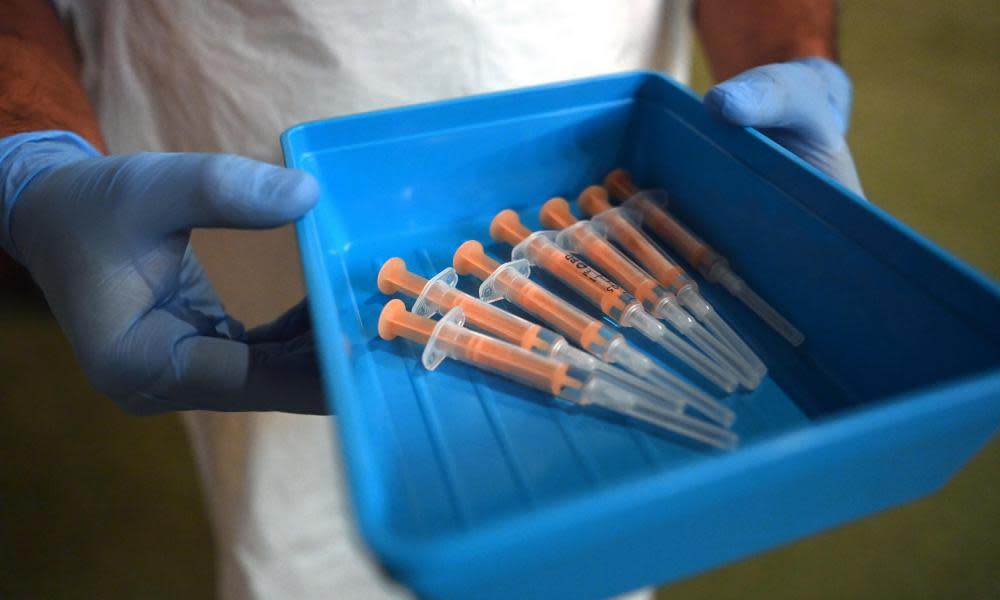Frontline workers and BAME groups will not be prioritised for UK vaccines

Frontline workers and black, Asian and minority ethnic groups will not be prioritised for vaccination in the next stage of the Covid jab rollout, the Guardian understands.
The Joint Committee on Vaccination and Immunisation (JCVI) updated their advice on Wednesday to recommended that people with learning disabilities be invited for vaccination to ensure people at higher risk of the disease were protected as soon as possible.
However, a government source confirmed that the JCVI was also poised to reject vaccine prioritisation by occupation or race – and that jabs would proceed down the age bands of adults to 18-year-olds.
“This is ultimately about who is most likely to get seriously ill and die from this disease, and when you put it like that the public do understand that has to the priority,” the source said.
Unions have argued that those working in frontline roles such as teaching and the police should be prioritised in the next stage of the rollout, after older groups and the clinically vulnerable. Equality groups have also called for people from BAME communities to be prioritised, in light of research showing they are more likely to die from coronavirus.
Speaking to the Commons science and technology committee on Wednesday, Prof Anthony Harnden, the deputy chair of the JCVI, said there was no good scientific reason to prioritise teachers.
“We looked at the data very carefully on this, and when you look at ONS data, it doesn’t suggest that teachers are any more at risk of acquiring infections from coronavirus than any other occupation and there are other occupations more at risk than teachers,” he said.
“We know, for instance, that people who work in processing plants, who are in closed environments without ventilation and a great amount of noise and having to shout, are quite a lot more at risk than teachers who teach children wearing masks and have adequate ventilation.”
Announcing the addition of people with learning disabilities to the list of those currently being prioritised for vaccination, Helen Whately, the care minister, said: “I have heard first-hand how tough this pandemic has been for people with learning disabilities and their families. We are determined those more at risk from Covid should be vaccinated as soon as possible.
“Following the JCVI’s updated advice and to make this process simpler and faster, we will be inviting everyone for vaccination who is on their GP’s learning disability register. This will mean those who are at a higher risk from the virus can get the protection they need.”
The health secretary, Matt Hancock, said he had asked the NHS to implement the advice “immediately”.
The increased risk to those with learning disabilities has been highlighted by the case of the DJ Jo Whiley, who was offered the vaccine before her sister, Frances, who has a genetic disorder and lives in residential care. Frances Whiley tested positive for the coronavirus after an outbreak in her Northampton care home and was admitted to hospital.
Harnden said the aim was to reach those with severe or profound learning difficulties, adding that people with milder learning disabilities should not approach their GPs yet.
“What we want to do is try and capture in whatever way we can all those with severe and profound learning disabilities, but we don’t want everybody with a relatively mild learning disability to come forward to be vaccinated now. That would cause problems, because there are over 1.5 million of those individuals,” he said.
Harnden said those registered with their GP as having learning disabilities and those with learning disabilities in shared or residential accommodation “should be immunised now as a priority”. About 1.2 million people have a learning disability in England, but only 250,000 are registered with GPs.

 Yahoo News
Yahoo News 
